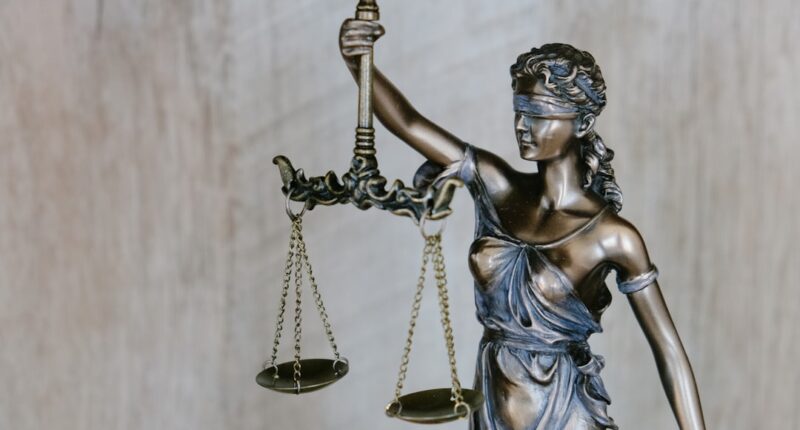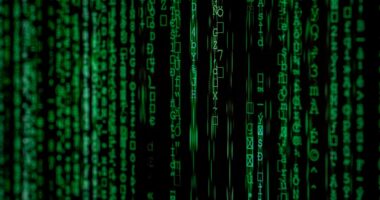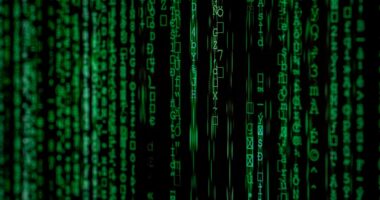NFTs, or non-fungible tokens, have taken the digital world by storm, revolutionizing the way we buy, sell, and trade digital assets. NFTs are unique digital tokens that represent ownership of a specific item or piece of content, such as artwork, music, videos, and more. One of the key aspects of NFTs is their connection to intellectual property rights. As an attorney specializing in NFT and IP law, it is crucial to have a strong understanding of how NFTs intersect with intellectual property rights. This includes understanding copyright, trademark, and other IP laws that govern the creation, ownership, and transfer of digital assets. Additionally, it is important to understand the concept of provenance and how it applies to NFTs, as it is essential for verifying the authenticity and ownership of digital assets on the blockchain.
In the world of NFTs, intellectual property rights play a crucial role in determining ownership, licensing, and enforcement of digital assets. As an attorney, it is important to stay updated on the latest developments in IP law as it pertains to NFTs, as this area of law is constantly evolving. This includes staying informed about landmark cases, legal precedents, and emerging best practices for protecting and enforcing intellectual property rights in the digital space. By developing a deep understanding of NFTs and intellectual property rights, attorneys can effectively advise clients on how to navigate the complex legal landscape of digital asset ownership and transactions.
Key Takeaways
- NFTs represent unique digital assets and understanding their impact on intellectual property rights is crucial for legal professionals.
- Developing a strong understanding of crypto and blockchain technology is essential for navigating the complexities of NFT transactions.
- Building a network within the NFT community can provide valuable insights and opportunities for collaboration in the legal space.
- Staying updated on legal and regulatory developments in the NFT space is necessary to ensure compliance and mitigate risks for clients.
- Mastering the art of negotiation and contract drafting for NFT transactions is key to protecting the interests of clients and ensuring fair deals in the digital art world.
- Navigating disputes and enforcement actions in the NFT world requires a deep understanding of the unique challenges and legal considerations in this emerging space.
- Continuing education and professional development in NFT and IP law is essential for staying ahead of the curve and providing top-notch legal services to clients.
Developing a Strong Understanding of Crypto and Blockchain Technology
In order to effectively navigate the legal complexities of NFTs, it is essential for attorneys to have a strong understanding of crypto and blockchain technology. NFTs are built on blockchain technology, which is a decentralized and distributed ledger that records transactions across a network of computers. Understanding how blockchain technology works is crucial for attorneys working in the NFT space, as it forms the foundation for the creation, transfer, and verification of digital assets. Additionally, having a solid grasp of cryptocurrency and how it is used to buy and sell NFTs is essential for providing comprehensive legal advice to clients.
As an attorney specializing in NFT and IP law, it is important to stay updated on the latest developments in crypto and blockchain technology. This includes staying informed about new protocols, platforms, and tools that are being developed to support the creation and trading of NFTs. By staying ahead of the curve in understanding crypto and blockchain technology, attorneys can effectively advise clients on the legal implications of using these technologies to create, buy, sell, and trade digital assets.
Building a Network within the NFT Community
Building a strong network within the NFT community is essential for attorneys looking to specialize in NFT and IP law. The NFT community is made up of artists, creators, collectors, platforms, and other stakeholders who are actively involved in the creation and trading of digital assets. By building relationships within the NFT community, attorneys can gain valuable insights into the needs and concerns of their clients, as well as stay updated on the latest trends and developments in the space. Additionally, networking within the NFT community can lead to potential collaborations and partnerships that can benefit both attorneys and their clients.
Attorneys specializing in NFT and IP law can build their network within the NFT community by attending industry events, joining online forums and communities, and actively engaging with key stakeholders in the space. By establishing themselves as trusted advisors within the NFT community, attorneys can position themselves as go-to experts for legal advice related to digital asset ownership and transactions.
Staying Updated on Legal and Regulatory Developments in the NFT Space
The legal and regulatory landscape surrounding NFTs is constantly evolving, making it essential for attorneys to stay updated on the latest developments in this space. From securities laws to tax regulations, there are a myriad of legal and regulatory considerations that impact the creation, sale, and transfer of NFTs. Attorneys specializing in NFT and IP law must stay informed about new legislation, regulatory guidance, and enforcement actions that may impact their clients’ activities in the NFT space.
In addition to staying updated on legal and regulatory developments at the national level, attorneys must also be aware of international laws and regulations that may impact their clients’ cross-border NFT transactions. By staying ahead of the curve in understanding the legal and regulatory landscape of NFTs, attorneys can provide proactive legal advice to their clients and help them navigate potential risks and compliance challenges.
Mastering the Art of Negotiation and Contract Drafting for NFT Transactions
Negotiation and contract drafting are essential skills for attorneys working in the NFT space. Whether representing artists, creators, collectors, or platforms, attorneys must be adept at negotiating favorable terms for their clients in NFT transactions. This includes negotiating licensing agreements, sales contracts, royalty arrangements, and other key terms that impact their clients’ ownership and rights in digital assets. Additionally, attorneys must be skilled at drafting clear and comprehensive contracts that accurately reflect their clients’ intentions and protect their interests in NFT transactions.
To master the art of negotiation and contract drafting for NFT transactions, attorneys must have a deep understanding of their clients’ goals and priorities, as well as a strong grasp of the legal and business considerations at play. By effectively negotiating and drafting contracts for NFT transactions, attorneys can help their clients achieve their desired outcomes while minimizing potential disputes or legal challenges down the road.
Navigating Disputes and Enforcement Actions in the NFT World

Disputes and enforcement actions are an inevitable part of the NFT world, making it essential for attorneys specializing in NFT and IP law to be prepared to navigate these challenges on behalf of their clients. Whether it’s a dispute over ownership rights, copyright infringement, or breach of contract, attorneys must be skilled at resolving conflicts and enforcing their clients’ rights in the digital space. This may involve engaging in negotiations, mediation, arbitration, or litigation to protect their clients’ interests in NFT transactions.
In addition to navigating disputes between private parties, attorneys must also be prepared to address enforcement actions from regulatory authorities or third parties who may challenge the legitimacy or legality of their clients’ activities in the NFT space. By developing a proactive approach to navigating disputes and enforcement actions in the NFT world, attorneys can effectively protect their clients’ interests and minimize potential legal risks.
Continuing Education and Professional Development in NFT and IP Law
Continuing education and professional development are essential for attorneys specializing in NFT and IP law to stay ahead of the curve in this rapidly evolving field. This may include attending industry conferences, participating in specialized training programs, or pursuing advanced certifications in blockchain technology or digital asset law. By staying updated on the latest trends, best practices, and legal developments in NFT and IP law, attorneys can position themselves as trusted advisors for clients seeking comprehensive legal guidance in the digital asset space.
In addition to formal education and training programs, attorneys can also benefit from staying engaged with industry thought leaders, participating in online forums and communities focused on NFTs, and actively seeking out opportunities to expand their knowledge and expertise in this area. By committing to ongoing professional development in NFT and IP law, attorneys can ensure they are well-equipped to provide high-quality legal services to clients operating in the fast-paced world of digital assets.
In conclusion, specializing in NFT and IP law requires a deep understanding of NFTs, intellectual property rights, crypto and blockchain technology, as well as strong negotiation skills, dispute resolution abilities, and ongoing professional development. By mastering these key areas of expertise, attorneys can effectively navigate the complex legal landscape of digital asset ownership and transactions while providing valuable guidance to clients operating in the dynamic world of NFTs.
Sure, here’s a paragraph with a related article included as an tag:
If you’re looking to excel as an NFT intellectual property specialist, it’s essential to stay updated on the latest trends and developments in the industry. One valuable resource is the article “The Rise of NFTs in the Digital Art World” on NFT-Jobs.com. This insightful piece explores the impact of NFTs on the digital art market and provides valuable insights for professionals in the field. Keeping abreast of such articles can help you stay ahead of the curve and make informed decisions in your role as an NFT intellectual property specialist.
FAQs
What is an NFT Intellectual Property Specialist?
An NFT Intellectual Property Specialist is a professional who specializes in the legal and intellectual property aspects of non-fungible tokens (NFTs). They are knowledgeable about copyright, trademark, and other intellectual property laws as they pertain to NFTs.
What are the responsibilities of an NFT Intellectual Property Specialist?
The responsibilities of an NFT Intellectual Property Specialist may include advising clients on copyright and trademark issues related to NFTs, drafting and reviewing NFT-related contracts, conducting due diligence on NFT transactions, and representing clients in intellectual property disputes related to NFTs.
What skills are required to excel as an NFT Intellectual Property Specialist?
To excel as an NFT Intellectual Property Specialist, one should have a strong understanding of intellectual property law, particularly as it applies to digital assets such as NFTs. Additionally, excellent research, analytical, and communication skills are essential, as well as a keen eye for detail and the ability to stay updated on the latest developments in the NFT space.
How can one become an NFT Intellectual Property Specialist?
Becoming an NFT Intellectual Property Specialist typically requires a background in law, with a focus on intellectual property. This may involve obtaining a law degree with a specialization in intellectual property law, gaining relevant work experience in the field, and staying informed about the intersection of NFTs and intellectual property.
What are the career prospects for NFT Intellectual Property Specialists?
As the NFT market continues to grow, the demand for legal professionals with expertise in NFT-related intellectual property issues is expected to increase. NFT Intellectual Property Specialists may find opportunities in law firms, corporate legal departments, and consulting firms, as well as the potential to work with individual NFT creators and collectors.





